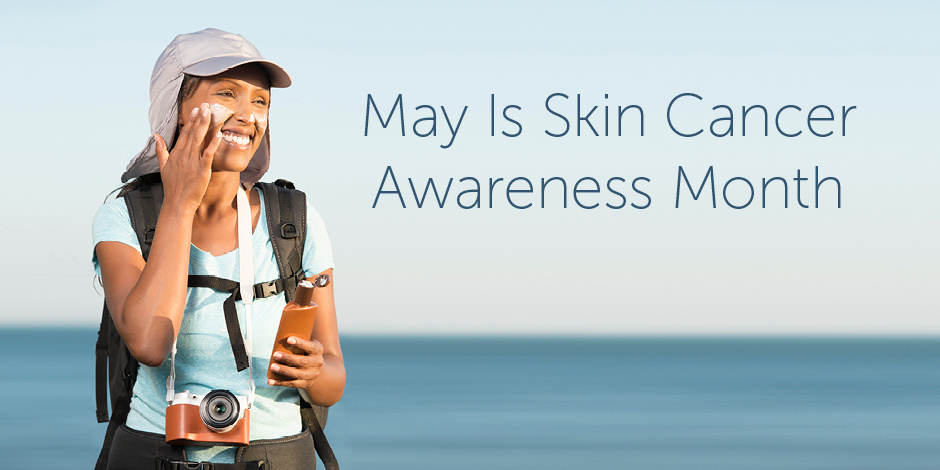
Skin cancer is the most common type of cancer in the US with nearly 9,500 people diagnosed every day.1
While skin cancer affects people of all races and ethnicities, the prognosis for BIPOC (Black, Indigenous, and people of color) individuals is often worse than for other ethnic groups primarily because of late diagnosis, which makes skin cancer much harder to treat. The five-year survival rate for Black patients with skin cancer is only 71 percent compared to 93 percent for white patients.2 One step toward reducing this inequity is to raise awareness about this issue and make sure people of color know the signs of skin cancer.
Any color skin can experience damage from ultraviolet (sun) exposure, and the American Academy of Dermatology recommends that all people, regardless of skin color, protect their skin from ultraviolet rays. This means sitting in the shade when possible, wearing hats and sun protective clothing, and wearing broad spectrum sunscreen (SPF 30) or greater when in the sun. Not all skin cancers are necessarily sun related, however, so an essential part of improving skin cancer outcomes in the BIPOC community is raising awareness among BIPOC individuals as well as among healthcare providers.
How can you detect skin cancer?
Most skin cancers are readily seen on the surface of the skin, especially if you know what to look for. It is a good idea to regularly check your skin from head to toe – have a hairdresser, friend, or family member check your scalp, and make sure to check bottoms of feet, nails, and palms. Use a handheld mirror to check areas that are hard to reach. You are looking for dark spots that are growing, bleeding, or changing; sores that don’t heal; patches of skin that feel rough or dry or bleed easily; and new dark lines underneath or around a fingernail or toenail. Make an appointment with a dermatologist if you notice any suspicious changes in your skin.
In addition, healthcare providers can do more to combat discrepancies of skin cancer outcomes in people with darker skin. Most traditional medical programs focus their training on recognizing and diagnosing skin abnormalities that may be cancerous on light skinned people.3 As awareness for skin cancer in people of color grows, some organizations have published information about and examples of skin cancer on darker skin types, such as the Skin Cancer Foundation and the American Academy of Dermatology Association.
Click here to schedule an appointment with one of our expert dermatologists at The Oregon Clinic Portland Dermatology.
Sources
1. Skin Cancer Facts & Statistics: The Skin Cancer Foundation, January 2022
2. Skin Cancer & Skin of Color: The Skin Cancer Foundation, January 2022
3. This med student wrote the book on diagnosing disease on darker skin: Cathy Cassata, Healthline, September 4, 2020